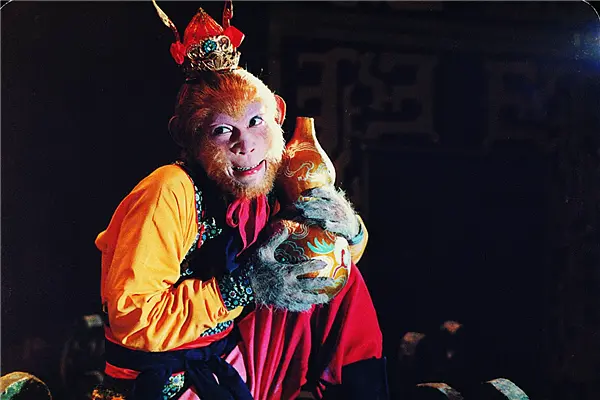(CHINADAILY) For CCTV's Lunar New Year's eve gala that heralds the Year of the Monkey, one "monkey" is widely considered by Chinese to be indispensable. He is Zhang Jinlai, better known by his stage name, Liu Xiao Ling Tong, meaning The Little Six-Year-Old, which marks the age he made his stage debut some 51 years ago.
Zhang starred as Sun Wukong, the Monkey King, in the 1986 television adaptation ofJourney to the West. The 25-episode fantasy series, though filmed with the crude special effects of the day, was aired every summer, familiarizing several generations to the charm of the world's most idolized monkey.
While the public had long deemed it a no-brainer that Zhang would be a shoo-in for the nation's highest-rated variety show, Zhang recently divulged that he was invited to the "opera show" instead, which is a companion show with a much lower viewership. It also implies that he would not be on the all-important gala.
The avalanche of criticism leveled against decision-makers at CCTV, China's only national TV network, has been unrelenting. "Even Americans know the importance of this actor, how can you be so blind?" asked one, referring to Pepsi-Cola’s television spot that celebrates the Chinese New Year. It stars Zhang.
"Without Brother Monkey, we would tune out the gala and tune into another repeat of the old show," many said in theironline comments that followed the news report.
"There are a thousand Hamlets in the eyes of a thousand people, but there is only one Sun Wukong in our eyes and that is The Little Six-Year-Old," said another remark.
To be fair, many actors have played the famed monkey, including Donnie Yen, who starred in 2014'sThe Monkey, Aaron Kwok in the upcomingThe Monkey King 2, and Huang Bo inJourney to the West:Conquering the Demons. The features starring Yen and Huang grossed one billion yuan or more at the box office, and The Monkey King 2 is expected to earn just as much. Kwok, who spent seven to eight hours a day putting on the monkey makeup, said: "There will be no regret for a Chinese actor if he can play the Monkey King at least once in his career."
Despite the personal imprint put on the beloved character by diverse actors (There was an African-American Broadway actor who played the monkey in a Beijing-based musical two years ago), the Zhang family has had a firm lock on the role. As many as four generations of the family’s men have specialized in it. The family is originally from Shaoxing, Zhejiang province, and practices the local version of opera. Decades ago they caught the attention of top leaders like Mao Zedong and Zhou Enlai and, with the 1986 hit TV series, their monopoly on the public’s imagination was pretty much complete.
Granted, actors from other forms of traditional Chinese opera also excelled in the role, now informally called "the Monkey Repertory". Ghaffar Pourazar, an Englishman of Iranian descent, has done more than many to promote Peking Opera – and the Monkey Repertory in particular – to an overseas audience. He gave up his job as a computer animator and came to Beijing in the mid-1990s to study the art form. His turn as the Monkey King is customized for a Western audience, sprinkling crucial dialogue with English words for easy accessibility.
Some surmised that Zhang was not invited by the CCTV gala because at, 57, he is considered too old. That is unusual for a show that resorts to "Thanks for the memory" appearances as a hallmark. Zhang’s image as the monkey king will linger long in people’s memory – with or without the hoopla of a TV gala.
About Journey to the West
Journey to the West is a Chinese novel written in the 16th century by Wu Cheng'en. The novel is based on the story of legendry Tang Dynasty (AD 618-907) Buddhist monk Xuanzang, who traveled to today's India seeking sacred texts. The novel mixes Chinese folk mythologies, Buddhism and Taoism, and creates three disciples who follow Xuanzang to defeat evil and monsters: Sun Wukong (the Monkey King), Zhu Wuneng (a pig monk also known as Zhu Bajie) and Sha Wujing.
Being an important source for traditional Chinese operas, the novel also remains popular in the mass entertainment scene in China and nearby regions since it was first adapted into a Chinese silent film in 1927. In the Chinese mainland, Hong Kong, and Japan, there are altogether more than 10 TV series based on Journey to the West, besides numerous films, comic books and animations.
 简体中文
简体中文



